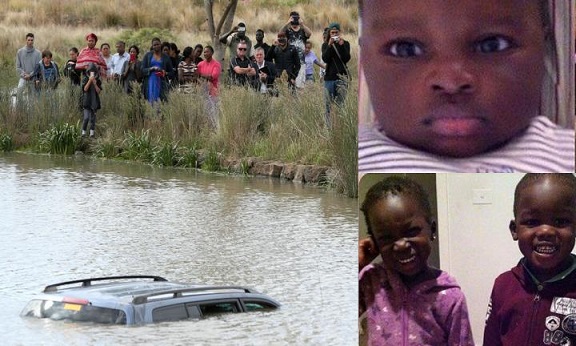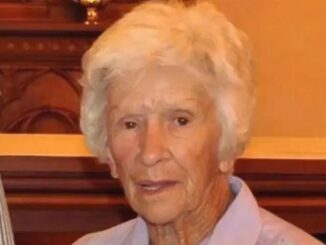
A mother who killed three of her children by deliberately driving them into a lake in Australia has been jailed for at least 20 years.
Akon Guode, 37, killed one-year-old Bol and four-year-old twins Hanger and Madit in Melbourne in 2015.
Another child, six-year-old Alual, was also in the car but survived.
Guode had pleaded guilty to murder, infanticide and attempted murder, but a judge said her motive for the crimes remained unclear.
“Your betrayal of their trust was catastrophic,” Justice Lex Lasry told Guode in the Supreme Court of Victoria on Tuesday.
“People want to understand why you did what you did, because particularly for parents of young children such action is foreign and unthinkable.
“In my opinion, your actions were the product of extreme desperation, rather than any form of vengeance.”
Onlookers and emergency crews tried desperately to rescue the children in the moments after the car entered the lake in the suburb of Wyndham Vale. Guode and Alual were rescued.
In earlier hearings, the court heard harrowing accounts of what witnesses confronted on the day.
“They (the children) are floating, they are floating in the water,” one onlooker said in an emergency call played to the court.
“(They) can’t swim.”
Joseph Manyang, the father of the three children, testified that Guode was a “loving mother” who would not have harmed the children intentionally and had spoken of feeling dizzy before the crash.
However, a key witness told police that Guode spoke about killing her children on the day of the tragedy.
Justice Lasry acknowledged that Guode, who came to Australia as a refugee, had experienced trauma in South Sudan where she witnessed her husband’s murder.
She had endured an “extraordinarily difficult life”, he said.
The judge said Guode had been suffering post-traumatic stress, signs of depression and feelings of isolation from the Sudanese community.
He sentenced her to 26 years and six months in jail, with a non-parole period of 20 years.
He said it was likely she would be deported after serving her sentence.
Source: bbc.co.uk






Be the first to comment